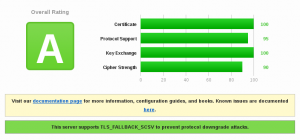ownCloud is giving us headaches. The package got removed from Debian due to hostile upstream behavior. We are heavily relying on stable and packaged software. We don’t have the resources to deal with new versions for this and that software trickling in every month. Many people, including me, debated about ownClouds behavior at length. But now, maybe something is happening: Frank Karlitschek, initiator and project leader of ownCloud, has left ownCliud Inc. where he worked as CTO. Maybe this is not unrelated to what I was discussing before:
I thought a lot about this situation. Without sharing too much, there are some moral questions popping up for me. Who owns the community? Who owns ownCloud itself? And what matters more, short term money or long term responsibility and growth? Is ownCloud just another company or do we also have to answer to the hundreds of volunteers who contribute and make it what it is today?
These questions brought me to the very tough decisions: I have decided to leave my own company today. Yes, I handed in my resignation and will no longer work for ownCloud, Inc.
And maybe there is hope:
There is tremendous potential in ownCloud and it is an open source product protected by the AGPL license. […] Stay tuned, as more news is coming!
